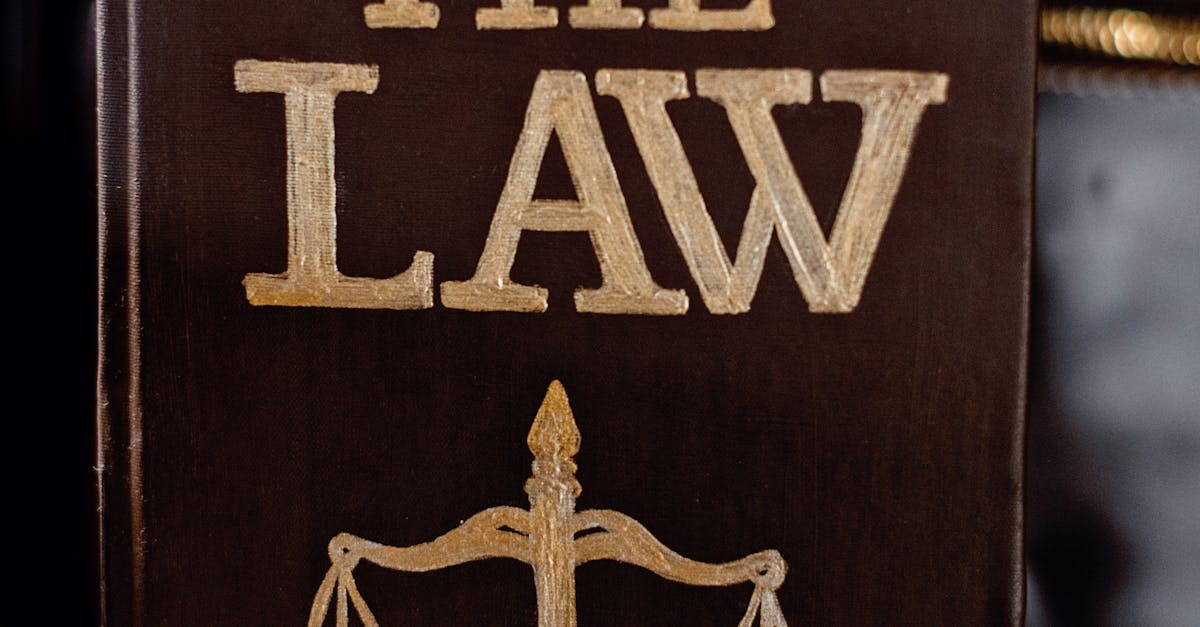Experienced Inheritance Dispute Lawyers for Resolving Inheritance Disputes
Key Takeaways
- Comprehending Succession Conflicts
- The Function of Succession Conflict Attorneys
- Steering Through Succession Claims
- Selecting the Appropriate Succession Conflict Solicitors
- Arbitration and Settlement in Succession Conflicts
- Preventing Succession Disputes
Understanding Inheritance Disputes
Inheritance disputes often arise due to ambiguities in wills, misunderstandings among beneficiaries, or claims made under the Inheritance (Provision for Family and Dependants) Act 1975. These conflicts may involve challenges to the validity of a will or disagreements on the distribution of assets, which can lead to lengthy litigation. Inheritance dispute lawyers play a crucial role in navigating such complexities, offering expertise in inheritance law and guiding clients through the intricacies of the legal system. Issues like inheritance tax and the role of enduring powers of attorney can further complicate matters. Having an experienced lawyer or attorney by your side ensures that your rights are protected, and any potential disputes are addressed effectively.
Common Causes of Inheritance Disputes
A significant cause of inheritance disputes arises from ambiguous or improperly drafted wills. Confusion over the distribution of inherited wealth often leads to disagreements among beneficiaries. In cases where lasting powers of attorney have been established, disputes may evolve regarding the intentions of the deceased or the actions of the appointed attorneys. In this context, inheritance dispute lawyers can offer vital legal advice, helping individuals navigate the complexities of estate laws and represent their interests in court if necessary.
Another common factor contributing to disputes involves family dynamics and relationships. Sibling rivalry or estranged relationships can fuel conflicts over ownership of assets. The involvement of the courts, including the court of protection, may become necessary to resolve such matters. Engaging with solicitors who are members of the Society of Trust and Estate Practitioners can provide families with expert guidance, ensuring that they are well-informed about their rights and responsibilities under the laws governing inheritance. These professionals can help mitigate conflicts before they escalate to formal disputes.
Types of Inheritance Claims
Inheritance claims can arise from various legal contexts under probate law. Disputes often focus on the validity of wills, where defendants may challenge the testamentary capacity of the deceased or allege undue influence. Issues may also stem from the interpretation of trust deeds, particularly concerning the distribution of property within estates. In such cases, inheritance dispute lawyers play a critical role in representing clients in both litigation and mediation settings for effective dispute resolution.
Claims may also involve allegations of negligence by trustees in managing estates or failing to adhere to the provisions of a will. This can lead to claims for breach of fiduciary duty, where beneficiaries seek redress for losses incurred due to improper administration of trusts and estates. Understanding the nuances of these claims is essential. Experienced inheritance dispute lawyers can navigate the complexities of the law, providing guidance and advocacy for clients seeking to protect their rights.
| Type of Claim | Description | Common Issues |
|---|---|---|
| Will Contest | Dispute over the validity of a will. | Undue influence, lack of testamentary capacity. |
| Trust Dispute | Issues surrounding the interpretation of trust deeds. | Inequitable distribution, trustee negligence. |
| Breach of Fiduciary Duty | Claims against trustees for mismanaging estates. | Improper administration, failure to act in beneficiaries' best interests. |
| Negligence Claims | Allegations of negligence by estate managers or trustees. | Financial losses due to mismanagement. |
The Role of Inheritance Dispute Lawyers
Inheritance dispute lawyers play a crucial role in navigating complex legal waters surrounding asset distribution and ownership disputes. These advocates assist clients in understanding beneficial ownership and the rights of executors, ensuring that every party’s interests are properly represented. Their expertise extends to areas such as private international law and tax law, crucial for handling cross-border inheritance issues and tax implications of property transfers, including real estate. Effective negotiation skills are essential, as inheritance disputes often require reaching amicable agreements to avoid lengthy court battles. In situations involving professional negligence or contentious judgments about interest in possession trusts, having skilled inheritance dispute lawyers is imperative for achieving fair resolutions.
Areas of Expertise of Inheritance Lawyers
Inheritance dispute lawyers possess a deep understanding of the legal frameworks governing inheritance matters within their jurisdiction. Their expertise extends to evaluating complex family dynamics, particularly in cases involving civil partnerships or blended families. Specialist inheritance dispute solicitors are adept at navigating the intricacies of inheritance dispute claims, ensuring that clients receive accurate guidance tailored to their unique circumstances. This knowledge equips them to handle all types of inheritance disputes effectively.
Many inheritance lawyers also provide comprehensive resources, such as inheritance dispute guides, to assist clients in understanding their rights and options. Resolute inheritance lawyers focus on both litigation and negotiation strategies, helping to resolve inheritance dispute claims amicably when possible. Their ability to assess and advocate for clients in contentious scenarios demonstrates the critical role inheritance dispute lawyers play in achieving favourable outcomes.
How Inheritance Dispute Solicitors Can Assist
Inheritance dispute lawyers play a crucial role in guiding clients through the complexities of inheritance claims. These professionals are well-versed in inheritance act claims and can provide valuable insights into the implications of the inheritance act. Their expertise is essential for addressing various inheritance issues, whether related to the distribution of assets or the validity of wills. Estate disputes solicitors work diligently to protect their clients' interests, ensuring that disputes are handled efficiently and effectively from a litigation perspective.
Inheritance solicitors serve as advocates for individuals facing challenging disputes, offering comprehensive support during tense negotiations. Private client lawyers understand the emotional and financial toll that inheritance disputes can take on families. Their role as litigation experts helps demystify the legal process, enabling clients to make informed decisions. From mediation to court representation, inheritance dispute lawyers are equipped to navigate estate disputes with the utmost professionalism and care.
Navigating Inheritance Claims
Facing an inheritance dispute can be a challenging experience, often leading to contentious probate disputes that complicate the distribution of a deceased's estate. The involvement of inheritance dispute lawyers is crucial in addressing these complex legal issues. These experts navigate legacy disputes and assist in the formulation of statutory wills, ensuring that all valid claims are considered. In cases of own disputes, such as deputyship or attorneyship disputes, lead lawyers can provide tailored legal arrangements to protect their clients' rights. Engaging an expert lawyer can significantly influence the resolution process, particularly in relation to disputed property or probate disputes, as they carry out essential legal work to secure a fair outcome.
- Understand the importance of having a clear will to minimise disputes.
- Collect and organise all relevant documents and evidence related to the estate.
- Seek legal advice early to clarify your rights and obligations regarding the inheritance.
- Consider mediation as a less adversarial way to resolve disputes before resorting to litigation.
- Be mindful of emotional factors that may influence family dynamics during the claims process.
- Stay informed about the legal procedures and timelines associated with inheritance claims.
- Communicate openly with other beneficiaries to facilitate a smoother resolution.
Steps to Take When Facing an Inheritance Dispute
Facing an inheritance dispute can be daunting, and seeking immediate legal guidance is crucial. Engaging inheritance dispute lawyers ensures that you have the right legal knowledge to navigate contentious probate law effectively. These specialist lawyers today are well-versed in handling contentious probate cases and can provide invaluable support in addressing domicile disputes and other related issues. Their expertise is essential for resolving the complexities of inheritance disputes and optimising efficient inheritance tax strategies.
Taking prompt action is vital for preserving your rights and interests. It is advisable to consult with experienced estate practitioners and legal teams who specialise in contentious probate claims. Their legal advisors can help demystify the process, outlining the specific steps necessary to address the dispute whilst ensuring all aspects of the estate are managed properly. With their assistance, you can approach the situation with confidence, benefitting from tailored legal strategies that align with your unique circumstances.
Legal Framework Surrounding Inheritance Disputes
The legal side of inheritance disputes encompasses various laws and statutes that govern the distribution of estate assets. Involvement of inheritance dispute lawyers is crucial for navigating these complex regulations. These legal professionals understand the intricacies of private wealth law and can help clients deal with issues such as trust disputes and contentious probate cases. Courts often adjudicate the merits of each claim, and legal representation becomes vital in cases involving shareholder disputes or partnership disputes among beneficiaries.
Inheritance disputes may arise due to ambiguities in wills or disagreements over the validity of trusts. To resolve these issues, inheritance dispute lawyers assist clients in preparing for court action or exploring alternative dispute resolution options. Their expertise not only facilitates a smoother handling of disputes but also ensures that the interests of those involved are represented effectively. Engaging solicitors with experience in handling trust disputes and estate matters can significantly impact the outcome of these legal battles.
Choosing the Right Inheritance Dispute Solicitors
Selecting the right inheritance dispute lawyers can significantly influence the outcome of your claim, especially in complex cases involving multi-jurisdictional families or estates. Expert solicitors will be well-versed in the intricacies of succession disputes, ensuring that they provide a robust legal solution tailored to your specific needs. In situations where court proceedings are unavoidable, having seasoned professionals can help mitigate potential legal costs and prevent unnecessary prejudice against your case. It's also crucial to engage lawyers with experience in deputyship or attorneyship matters, as these situations often intersect with inheritance claims. Assessing the expertise of solicitors in handling multi-jurisdictional estate issues can lead to more effective resolutions and a smoother process overall.
Factors to Consider When Hiring Inheritance Lawyers
Choosing the right inheritance dispute lawyers can significantly impact the outcome of your case, particularly in contentious matters involving multi-jurisdictional estates. It is crucial to consider their expertise in handling property trust claims and contentious trusts, especially if your situation includes example claims of administration disputes or cross-border succession disputes. Experienced inheritance dispute lawyers will have the necessary skills to navigate the complexities of different legal systems and provide sound advice tailored to your specific circumstances.
Another factor to consider is the lawyer's ability to communicate effectively and build a rapport with you, which can be essential during contentious matters. Associate solicitors within a firm may also play a pivotal role in handling your case, so understanding their qualifications and experience in dealing with estates and related disputes can help ensure a more favourable resolution. Thoroughly evaluating the services offered, including their approach to negotiation and mediation, can aid in selecting the right professional for your property trust needs.
- Consider the lawyer's experience with similar cases and areas of inheritance law.
- Evaluate their communication style and ability to explain complex legal terms.
- Look for client testimonials or reviews to gauge satisfaction with their services.
- Assess their negotiation skills and approach to dispute resolution.
- Confirm their familiarity with multi-jurisdictional estate laws, if applicable.
- Check for availability and responsiveness to your inquiries and concerns.
- Ensure they provide a clear outline of their fees and billing structure.
Evaluating Inheritance Dispute Services
Evaluating the quality of inheritance dispute services requires a thorough examination of the merits of potential claims. Inheritance dispute lawyers should showcase their expertise in possession trusts and the applicable law surrounding dependency rights. Assessing their previous work in courtrooms can provide insight into their ability to manage complex estate matters. Reviewing their correspondence and communication style is equally crucial, as effective lawyers will keep you informed throughout the process of your whole estate.
Professional negligence claims can arise if an inheritance dispute solicitor fails to act in accordance with the applicable standards. Therefore, it is important to evaluate their approach to handling estate claims and their experience with act claims relevant to your situation. A well-rounded assessment of their services will include understanding their strategy in navigating disputes and their commitment to securing your rights within the inheritance framework. Carefully considering these factors will ensure you select the right inheritance dispute lawyers for your needs.
Mediation and Resolution in Inheritance Disputes
Mediation serves as a valuable approach in resolving inheritance disputes, particularly when families are faced with complex claims regarding a substantial estate. In these situations, inheritance dispute lawyers can help facilitate discussions to ensure that all parties feel heard and understood, often leading to more amicable resolutions. Strong cases may rely on the clarity of documents such as trust documents and declarations, which outline the intentions of the deceased. For cross-border estates, particular attention must be given to varying rules and trust structures that may impact proceedings. Engaging inheritance dispute lawyers early in the mediation process can provide crucial guidance, helping to navigate the intricacies of each case efficiently.
Benefits of Mediation in Inheritance Claims
Mediation offers a significant advantage for families caught in inheritance disputes, especially when complex family structures or multiple bequests are involved. Involving inheritance dispute lawyers can help navigate these difficult conversations, ensuring that all family members feel heard. Tax law experts may also assist in these sessions to clarify the potential financial implications of the decisions made during mediation, particularly concerning discretionary beneficiaries and settlor-interested trusts.
Resolving disputes through mediation can be more efficient than pursuing litigation, especially when foreign courts are involved. The process helps maintain family associations and can preserve the integrity of the family business. By fostering open dialogue, mediation allows families to explore creative solutions tailored to their unique circumstances, minimising lasting tensions and reinforcing relationships that might have been strained during the inheritance struggle.
Alternative Dispute Resolution Options
Inheritance disputes often arise within families over multi-million pound inheritances, necessitating the expertise of inheritance dispute lawyers. These professionals can provide guidance on potential amendments to wills or trusts that allocate shares in family wealth. A wife challenging her husband's estate may seek a favourable settlement with the assistance of strong advocates in a private client practice. Their objective is to navigate complexities and ensure that every stake in the inheritance is addressed fairly.
Various alternative dispute resolution options exist to help parties resolve their differences without resorting to lengthy court proceedings. Mediation is a common pathway, allowing family members to discuss their concerns openly while benefiting from the privilege of confidentiality. Inheritance dispute lawyers can facilitate these discussions, helping to create a collaborative environment where parties can reach an amicable settlement. Engaging in these alternative methods often preserves relationships and enables a more efficient resolution regarding trusts and estate distribution.
| ADR Method | Description | Benefits |
|---|---|---|
| Mediation | A process where a neutral third party facilitates discussions between disputing parties to help them reach a mutually agreeable solution. | Confidentiality, preserves relationships, faster resolution, and lower costs compared to court. |
| Arbitration | A formal process where a neutral third party makes a binding decision after hearing arguments and evidence presented by both sides. | Legally binding outcomes, privacy, and efficiency. |
| Collaborative Law | A process where both parties work with their lawyers to negotiate a settlement without going to court. | Focuses on cooperation, interests are prioritized, and can maintain relationships. |
| Conciliation | A process where a neutral third party helps the parties negotiate a settlement, often proposal-based. | Can be less formal and promotes open communication leading to resolutions. |
| Negotiation | A direct discussion between parties to resolve their dispute without any third party involvement. | Empowers parties, flexible, and can lead to creative solutions tailored to both sides. |
Avoiding Inheritance Disputes
Effective strategies for preventing inheritance disputes often involve clear communication and meticulous planning. For example, establishing a trust can grant trustees the authority to manage assets, thereby minimising misunderstandings among beneficiaries. A well-drafted will, tailored to the specific circumstances of a client’s family dynamic, can provide essential provisions that outline succession intentions and protect the interests of all parties involved. Seeking advice from inheritance dispute lawyers can also help in navigating the complexities of international law, ensuring compliance with pertinent regulations. This proactive engagement not only fosters partnerships between clients and legal experts but also serves to preempt potential conflicts.
Conclusion
Inheritance disputes can arise from a variety of matters, leading to complex issues that affect family dynamics and the distribution of assets. Engaging inheritance dispute lawyers provides essential support, as they help clients effectively navigate these challenging situations. Their expertise ensures that each party receives a fair share of the estate while addressing any concerns that may cross into legal territories. With the right legal representation, individuals can resolve disputes with greater ease and achieve satisfactory outcomes, minimising the emotional toll often associated with such conflicts.
FAQS
How can inheritance solicitors assist in managing contentious probate cases effectively?
Inheritance solicitors play a crucial role in dealing with contentious probate teams, helping clients navigate complex matters such as the inheritance (provision for family and dependants) act 1975 and any potential claim pursuant to this legislation. They provide guidance in cases involving trusts disputes, deputyship/attorneyship disputes, and cross border estate issues. Additionally, these solicitors ensure that family offices and occasions trustees are approached with the necessary care and permission, thereby reducing the risk of prejudice—solicitors are aware of the sensitivity required in such situations and focus on protecting the interests of their clients.
What role do inheritance disputes solicitors play in cases involving the Inheritance (Provision for Family and Dependants) Act 1975?
Inheritance disputes solicitors assist in navigating the complexities of the Inheritance (Provision for Family and Dependants) Act 1975, ensuring that those who may not have received fair provision from an estate can seek the necessary legal remedies. These solicitors help people understand their rights and advocate for equitable claims, particularly in situations involving shareholding and other family dynamics.
How do solicitors help people navigate the complexities of the Inheritance (Provision for Family and Dependants) Act 1975 during inheritance disputes?
Solicitors play a crucial role in assisting people with inheritance disputes related to the Inheritance (Provision for Family and Dependants) Act 1975. They provide expert advice, ensure that claims are made within the legal time limits, and represent clients in negotiations or court proceedings to achieve a fair outcome.
How do solicitors assist people in understanding their rights under the Inheritance (Provision for Family and Dependants) Act 1975 during an inheritance dispute?
Solicitors help people by providing expert legal guidance on their rights and obligations under the Inheritance (Provision for Family and Dependants) Act 1975, ensuring that clients understand their entitlements and the processes involved in resolving inheritance disputes.
How do inheritance dispute lawyers ensure that solicitors help people during complex cases involving the Inheritance (Provision for Family and Dependants) Act 1975?
Inheritance dispute lawyers play a crucial role in ensuring that solicitors help people navigate the intricacies of the Inheritance (Provision for Family and Dependants) Act 1975. They provide expertise in interpreting the Act and represent individuals seeking to claim provision under it, ensuring that solicitors support people effectively throughout the legal process.
What strategies do inheritance dispute lawyers use to support solicitors in representing people under the Inheritance (Provision for Family and Dependants) Act 1975?
Inheritance dispute lawyers employ various strategies to support solicitors in representing people under the Inheritance (Provision for Family and Dependants) Act 1975. These include conducting thorough evaluations of the case, providing expert legal advice, and helping solicitors people understand the complexities involved in making claims. Additionally, they can assist in negotiation processes and prepare cases for court, ensuring that all necessary documentation and evidence are gathered and presented effectively.
How do inheritance dispute lawyers approach cases related to unfair distributions in the context of the Inheritance (Provision for Family and Dependants) Act 1975?
Inheritance dispute lawyers take a strategic approach when dealing with cases involving unfair distributions, particularly under the Inheritance (Provision for Family and Dependants) Act 1975. They assess the specifics of each case to identify grounds for claims and evaluate whether the provisions of the Act have been appropriately applied, ensuring that beneficiaries receive fair treatment and that their rights are upheld in accordance with the Act.
What are the common challenges faced in legal disputes regarding inheritance under the Inheritance (Provision for Family and Dependants) Act 1975?
Legal disputes concerning inheritance under the Inheritance (Provision for Family and Dependants) Act 1975 often involve challenges such as proving dependency, understanding the deceased's intentions, and navigating complex family dynamics, which necessitate careful legal guidance to ensure fair outcomes.
What are the legal implications of the Inheritance (Provision for Family and Dependants) Act 1975 in inheritance disputes?
The Inheritance (Provision for Family and Dependants) Act 1975 has significant legal implications for inheritance disputes, as it allows certain individuals to claim reasonable financial provision from a deceased's estate. This Act is crucial for ensuring that dependants and family members can seek recourse if they feel inadequately provided for in a will, thereby addressing issues of fairness in inheritance distribution.
How do inheritance dispute lawyers help to clarify the legal framework surrounding the Inheritance (Provision for Family and Dependants) Act 1975?
Inheritance dispute lawyers play a crucial role in helping clients understand the provisions and implications of the Inheritance (Provision for Family and Dependants) Act 1975. They provide legal advice, help interpret the Act's provisions, and guide clients through the process of making claims or defending against them, ensuring that their rights under the Act are protected.
- Home
- Top Reads
- Roundup of Essential Tips for Selecting an Inheritance Dispute Lawyer
- Review of the Top Inheritance Dispute Lawyers in the UK
- 7 Key Factors to Consider When Choosing an Inheritance Dispute Lawyer
- The Historical Role of Inheritance Dispute Lawyers in Legal Cases
- Why You Should Understand Legal Fees Before Hiring a Lawyer
- Why Client Testimonials Are Important When Choosing a Lawyer
- What Questions to Ask During Your Initial Consultation with a Lawyer
- How to Evaluate a Lawyer's Experience in Inheritance Disputes
- What to Consider When Selecting an Inheritance Dispute Lawyer
- How to Choose the Right Inheritance Dispute Lawyer
- Roundup of Common Mistakes When Choosing a Lawyer
- Review of Top Inheritance Dispute Lawyers in the UK
- 10 Questions to Ask Your Inheritance Dispute Lawyer
- The History of Inheritance Law in the UK
- Why Understanding Legal Fees is Crucial
- Why Client Testimonials Matter When Choosing a Lawyer
- What to Ask During Your Initial Lawyer Consultation
- What to Look for in a Good Inheritance Dispute Lawyer
- How to Evaluate a Lawyer's Experience in Inheritance Cases
- Roundup of Common Misconceptions about Inheritance Dispute Lawyers
- Review of Top Inheritance Dispute Lawyers in Your Area
- How to Choose the Right Inheritance Dispute Lawyer
- 7 Key Factors to Consider When Selecting a Lawyer for Inheritance Disputes
- Historical Overview of Inheritance Dispute Law in the UK
- Why Understanding Payment Structures is Crucial in Legal Representation
- Why Client Testimonials Matter When Choosing an Inheritance Dispute Lawyer
- What to Consider When Evaluating a Lawyer's Experience in Inheritance Cases
- What to Expect from Legal Fees in Inheritance Disputes
- How to Prepare for Your Initial Consultation with an Inheritance Dispute Lawyer
- How to Choose the Right Inheritance Dispute Lawyer for Your Case
- Roundup of Essential Factors in Choosing an Inheritance Dispute Lawyer
- Review of Top Inheritance Dispute Lawyers in the UK
- 10 Questions to Ask an Inheritance Dispute Lawyer
- The History of Inheritance Dispute Law in the UK
- Why Client Testimonials and Reviews are Important in Choosing a Lawyer
- Why Experience Matters When Selecting an Inheritance Dispute Lawyer
- What to Ask During Your Initial Consultation with an Inheritance Lawyer
- What to Consider When Evaluating Legal Fees and Payment Structures
- How to Prepare for Your Initial Consultation with a Lawyer
- Roundup of Essential Questions to Ask Your Inheritance Dispute Lawyer
- How to Choose the Right Inheritance Dispute Lawyer
- A Review of Top Inheritance Dispute Lawyers in the UK
- 10 Factors to Consider When Choosing an Inheritance Dispute Lawyer
- The History of Inheritance Law and Its Impact on Disputes
- Why Understanding Legal Fees is Crucial in Inheritance Disputes
- Why Client Testimonials Matter in Choosing a Lawyer
- What Questions to Ask Your Inheritance Dispute Lawyer
- What to Look for When Selecting an Inheritance Dispute Lawyer
- How to Evaluate a Lawyer's Experience in Inheritance Disputes
- Roundup of Common Inheritance Dispute Cases
- How to Choose the Right Inheritance Dispute Lawyer
- Review of the Best Inheritance Dispute Lawyers
- 10 Tips for Collecting Evidence for Inheritance Claims
- The History of Inheritance Law in the UK
- Why You Need an Inheritance Dispute Lawyer
- Why Mediation is Important in Inheritance Disputes
- What to Do if Your Inheritance Claim is Denied
- What to Expect in Inheritance Claim Procedures
- Roundup of Resources for Inheritance Dispute Resolution
- How to File a Claim in Probate Court
- How to Navigate the Legal Process for Inheritance Claims
- Review of the Best Inheritance Dispute Lawyers
- Historical Overview of Inheritance Dispute Law
- 10 Common Mistakes in Inheritance Claims
- Why You Should Consider Appealing an Inheritance Dispute Decision
- Why Mediation is Important in Inheritance Disputes
- What to Do if Your Inheritance Claim is Denied
- What to Expect During an Inheritance Claim Procedure
- How to Prepare for Mediation in Inheritance Disputes
- How to File an Inheritance Claim in Probate Court
- Roundup of Effective Mediation Strategies for Inheritance Disputes
- The History of Mediation in Inheritance Law
- 10 Tips for Successful Inheritance Mediation
- Review of Top Inheritance Dispute Mediation Services
- Why You Should Consider Alternative Dispute Resolution for Inheritance Claims
- Why is Mediation Important in Inheritance Disputes
- What to Expect During an Inheritance Mediation Session
- What is Mediation in Inheritance Disputes
- How to Choose the Right Lawyer for Inheritance Mediation
- Roundup of Recent Inheritance Dispute Cases
- How to Navigate the Mediation Process in Inheritance Disputes
- Review of the Best Inheritance Dispute Lawyers
- 10 Tips for Successful Inheritance Claims
- Historical Overview of Inheritance Laws in the UK
- Why Mediation is Important in Inheritance Disputes
- Why You Need a Lawyer for Inheritance Disputes
- What Documents Are Required for Inheritance Claims
- What to Expect When Filing an Inheritance Claim
- How to Navigate the Inheritance Claim Process
- How to File an Inheritance Claim in Probate Court
- Roundup of Resources for Inheritance Dispute Resolution
- Review of the Best Inheritance Dispute Lawyers in Your Area
- 5 Common Mistakes in Inheritance Claims to Avoid
- Why You Should Hire an Inheritance Dispute Lawyer
- Historical Overview of Inheritance Laws in the UK
- Why Mediation Is Important in Inheritance Disputes
- What to Do If Your Inheritance Claim Is Denied
- What to Expect During Mediation for Inheritance Disputes
- How to File a Claim in Probate Court
- How to Navigate the Inheritance Claim Process
- Roundup of Top Resources for Inheritance Disputes
- Review of the Best Inheritance Dispute Lawyers
- 10 Common Types of Inheritance Disputes
- The Historical Context of Inheritance Disputes
- Why You Should Hire an Inheritance Dispute Lawyer
- Why Allegations of Undue Influence Matter
- What to Know About Disputes Over Trusts
- What to Do When Financial Provision Is Unreasonable
- How to Make an Intestacy Claim
- How to Challenge a Will in Court
- Roundup of Recent Changes in Inheritance Law
- Review of the Best Lawyers for Inheritance Disputes
- 10 Common Types of Inheritance Disputes Explained
- The Historical Context of Will Contests in the UK
- Why You Should Hire a Lawyer for Inheritance Disputes
- Why Allegations of Undue Influence Matter in Inheritance Cases
- What to Do When Faced with Disputes Over Trusts
- What to Know About Claims for Reasonable Financial Provision
- How to Approach Intestacy Claims in Family Disputes
- How to Resolve Will Contests Effectively
- Roundup of recent inheritance dispute case studies
- Review of the best inheritance dispute lawyers
- 10 common types of inheritance disputes
- Historical overview of inheritance disputes in the UK
- Why you need a lawyer for inheritance disputes
- Why are allegations of undue influence common in inheritance disputes
- What to do when facing disputes over trusts
- What are reasonable financial provision claims
- How to file an intestacy claim
- How to contest a will effectively
- Roundup of recent inheritance dispute cases
- Review of the best inheritance dispute lawyers
- 10 common types of inheritance disputes
- Historical overview of inheritance disputes in the UK
- Why do allegations of undue influence arise
- Why are disputes over trusts common
- What to know about claims for reasonable financial provision
- What to do if you are excluded from a will
- How to make an intestacy claim
- How to contest a will in the UK
- Roundup of recent inheritance dispute cases
- Review of the best inheritance dispute lawyers in the UK
- 10 common types of inheritance disputes
- Historical overview of inheritance laws in the UK
- Why you need a lawyer for inheritance disputes
- Why are disputes over trusts so common
- What to do if you suspect undue influence in a will
- What to know about claims for reasonable financial provision
- How to navigate intestacy claims after a death
- How to challenge a will in a contested probate





















































































































































